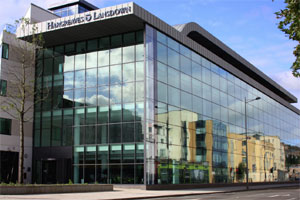
Hargreaves Lansdown has used its market muscle to pressure some fund managers to cut their charges.
Hargreaves is also cutting its own charges for some customers. We can now expect to see a flurry of price cuts from the investment platform’s rivals. (Platforms are also known as fund supermarkets.)
New regulations – known as RDR2 – have forced Hargreaves to launch a new pricing structure. Under the current rules, Hargreaves typically charges 1.5% a year for an actively-managed unit trust or OEIC..
From that original charge, Hargreaves typically rebates 0.17% to the customer, so the effective charge is 1.33% a year. The fund management company then typically receives an 0.75% annual management charge (AMC) from that 1.33% fee.
Under its new pricing structure, Hargreaves has ensured that the average AMC on its Wealth 150 platform will fall from 0.75% to 0.65%. What’s more 27 ‘core’ funds will charge as little as 0.54%.
It’s worth noting that the Wealth 150 supposedly comprises the best funds on the market as chosen by Hargreaves Lansdown. Yet 70% of these top funds are cutting their AMC.
It will be interesting to see if any funds outside the Wealth 150 cut their AMC. As Justin Modray of Candid Money points out, if no fund outside the 150 cuts its AMC, it would “suggest the Wealth 150 list is more a commercial negotiating tool than a serious research process”.
In other words, don’t assume that any fund in the Wealth 150 is definitely one of the best funds on the market.
On top of the AMC, most customers will pay a 0.45% fee to Hargreaves. However, wealthy customers will pay less in a tiered structure:
Fund Investments
|
Tiered Fee (per account)
|
| Up to £250,000 | 0.45% p.a. |
| From £250,000 to £1m | 0.25% p.a. |
| From £1m to £2m | 0.1% p.a. |
| From £2m | No charge |
Hargreaves charges no trading fee when you buy or sell a fund. (Trading fees still apply for shares and ETFs.)
Hargreaves Lansdown is also increasing the ‘loyalty bonus’ for existing funds on its investment platform to 0.75%.
So it’s pretty clear that RDR 2 is good news for investors in actively managed funds. However, the new rules aren’t so good for many investors in passive funds – where a fund replicates an index such as the FTSE 100.
That’s because passive investors on most platforms have been able to benefit from very low AMCs – sometimes as low as 0.2% – and they haven’t had to pay any fee to the platform/fund supermarket. (Hargreaves has been the exception and charged a £2 monthly fee for passive funds.)
Thanks to RDR, all platforms are now obliged to charge the same platform fee for passive and active funds, which will make passive investing more expensive.
However, Hargreaves has persuaded Legal & General and BlackRock to launch passive funds on its platform where the AMC is just 0.06% a year. That’s an astonishingly low charge. Hargreaves is also dropping its £2 monthly charge for passive funds.
Investment trusts
Hargreaves Lansdown customers who use investment trusts will also lose out from the new prices.
Under the current rules, investors pay a 0.5% annual charge on any holdings they have in shares or investment trusts. These charges are capped at £45 a year across your total holding in shares and investment trusts.
Going forward, the annual charge is being cut from 0.5% to 0.45% but there will now be separate caps for investment trusts and shares. In other words, you could end up paying a £90 charge rather than the current £45. So good news for small investors, but bad news for folk with larger holdings.
In personal pensions or Sipps, the maximum charge for both investment trusts and shares is £200 a year. So some Sipp investors could end up paying a £400 annual charge.
So what is the competition doing?
So far, Hargreaves is the only platform that has been able to secure AMC discounts from the fund managers. (These discounted units are known as ‘super-clean shares.)
Well, Barclays Stockbrokers and Fidelity haven’t yet announced their post-RDR pricing structures. They’ve probably been waiting for Hargreaves to make the first move.
However, Alliance Trust Savings and Charles Stanley Direct have revealed their hands.
Alliance Trust Savings isn’t charging a percentage fee, just a £90 annual charge for all portfolios on its platform. It also charges a £12.50 fee every time you trade a fund. So clearly Alliance Trust is most attractive for investors with relatively large portfolios who don’t trade very often.
Charles Stanley has a platform charge of 0.25% with no dealing charges so it should work out cheaper than Hargreaves Lansdown with the exception of a small number of funds where Hargreaves has secured an especially large AMC discount from the fund management company.
What we’ve learned today is that Hargreaves is cutting its existing charges and has secured some AMC discounts. But it’s pretty clear that it’s not going to be the cheapest player in the platform market.
That’s not a surprise. Hargeaves Lansdown has never really competed on price, it’s secured a market-leading position through excellent customer service and effective marketing.
What really interests me is to see whether any rival platform can secure AMC discounts from the fund managers. If that happens, competition should really hot up.
• This article was amended on 16 January to include details about investment trusts.